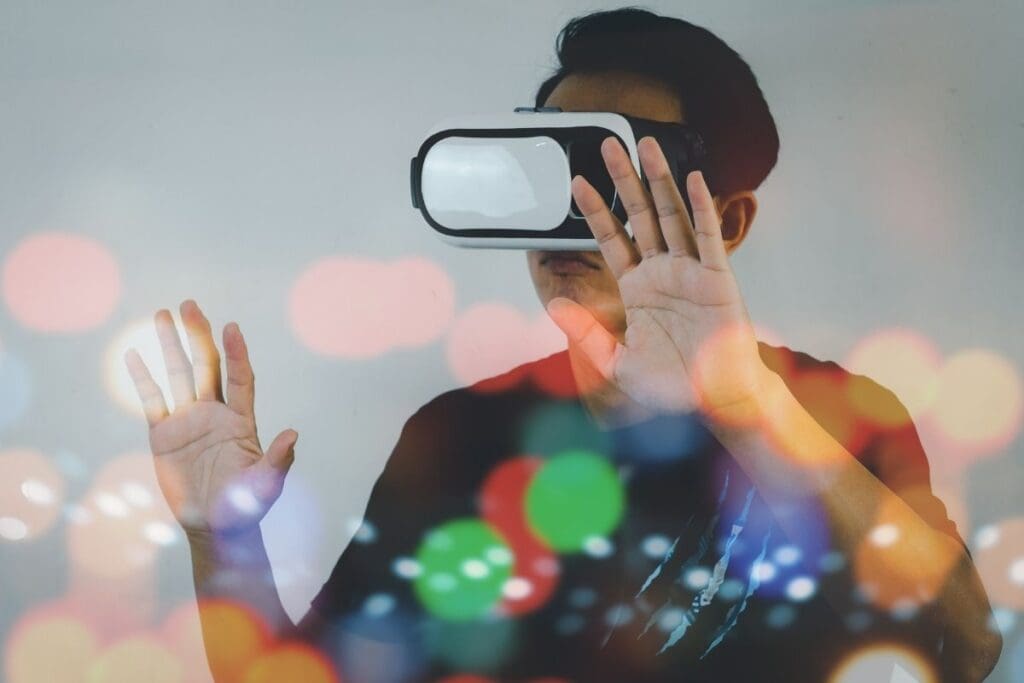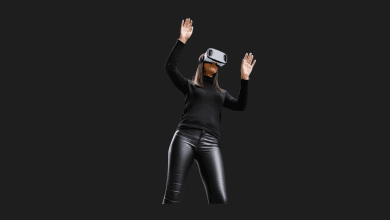2030 Prediction from Experts: Discover the Future of the Metaverse

As Metaverse platforms gain popularity, experts are beginning to predict that digitalization will soon reach a new zenith. Melanie Subin, a director at the US-based strategy consulting firm Future Today Institute, has expressed her belief that “by 2030, the majority of people will be engaged with the Metaverse in some capacity.”
Subin points out that while many individuals currently utilize Metaverse platforms and applications primarily for work-related activities, these platforms are poised to play a significantly larger role in people’s lives. Some users might engage with the Metaverse simply to meet work or educational requirements.
However, others might find themselves spending most of their waking hours connected to this system. This perspective, shared by Subin in an interview with The New York Post, underscores the growing influence and potential ubiquity of the Metaverse in the coming years.
“VR GLASSES WILL TURN INTO SMARTPHONES”

Experts assert that the Metaverse has been a part of our lives for years, tracing back to the advent of the first multiplayer video games. Its popularity surged notably last year when Facebook rebranded itself as Meta and introduced its virtual reality/augmented reality glasses. Many in the industry believe that these glasses will soon evolve into everyday essentials, akin to how smartphones are used today.
Patrick Cozzi, CEO of Cesium, a technology startup specializing in developing 3D software programs, shares this viewpoint. He predicts that wearable augmented reality devices could become as ubiquitous as smartphones are currently.
Cozzi envisions a future where products similar to Facebook’s Oculus gaming headsets could supplant cell phones as the primary means of daily communication and interaction among people. This reflects a growing trend where augmented and virtual reality technologies are increasingly integrated into everyday life.
THOSE WHO ARE ALREADY ADAPTABLE TO METAVERSE

Celebrities are rapidly embracing the realm of avatars and virtual reality glasses, immersing themselves in the Metaverse. Rapper Lil Nas X performed on the Metaverse platform Roblox, while artists like Travis Scott and Ariana Grande held performances on Fortnite, another platform seen as part of the Metaverse. These performances have garnered significant attention.
The fashion industry is also joining forces with Metaverse platforms to market virtual apparel. A notable example is Nike’s acquisition of RTFKT Studios, a company that creates NFT shoes specifically for the Metaverse. Additionally, popular platforms like Decentraland have begun the sale of virtual land plots.
Healthcare professionals are among those adapting swiftly to this “new reality.” For instance, surgical assistants at UConn Health medical center in the USA use Oculus headsets to perform surgical procedures and treat virtual patients as a preparatory step for actual operations.
Seoul became the first major city to enter the Metaverse in September. South Korea’s capital announced plans to create a “virtual ecosystem” for municipal services, including economic, cultural, tourism, educational, and civil services.
The pandemic, which has led to increased periods of home confinement for many, is also believed to have fueled the popularity of the Metaverse. There is growing speculation about whether tech giants like Google and Meta will emerge as dominant forces in this burgeoning virtual world.
“WE WANT TO GET ALL TOGETHER”

Yesha Sivan, editor of the technology magazine Journal of Virtual Worlds Research and a Metaverse expert, emphasizes the importance of a unified system for the Metaverse. He highlights the need for global standards to facilitate interoperability, expressing the desire for users to be able to buy a virtual item in one world (World A) and use it in another (World B). This vision reflects a broader optimism among those involved in the Metaverse about the future and the rapid development of virtual reality technology.
However, experts caution that not all promising applications will develop at the same pace. Patrick Cozzi, echoing this sentiment, points out that building the Metaverse may present some of the most exciting and challenging technical hurdles in history. While aspects of the Metaverse are already in existence, some successes are anticipated to materialize over a decade, while others might take up to 50 years. Melanie Subin also shares this view, acknowledging the long-term nature of some of these developments in the Metaverse.
“If you’re asking when we’re going to be running around like Neo entering The Matrix, I think we should look a little further to 2030.”











